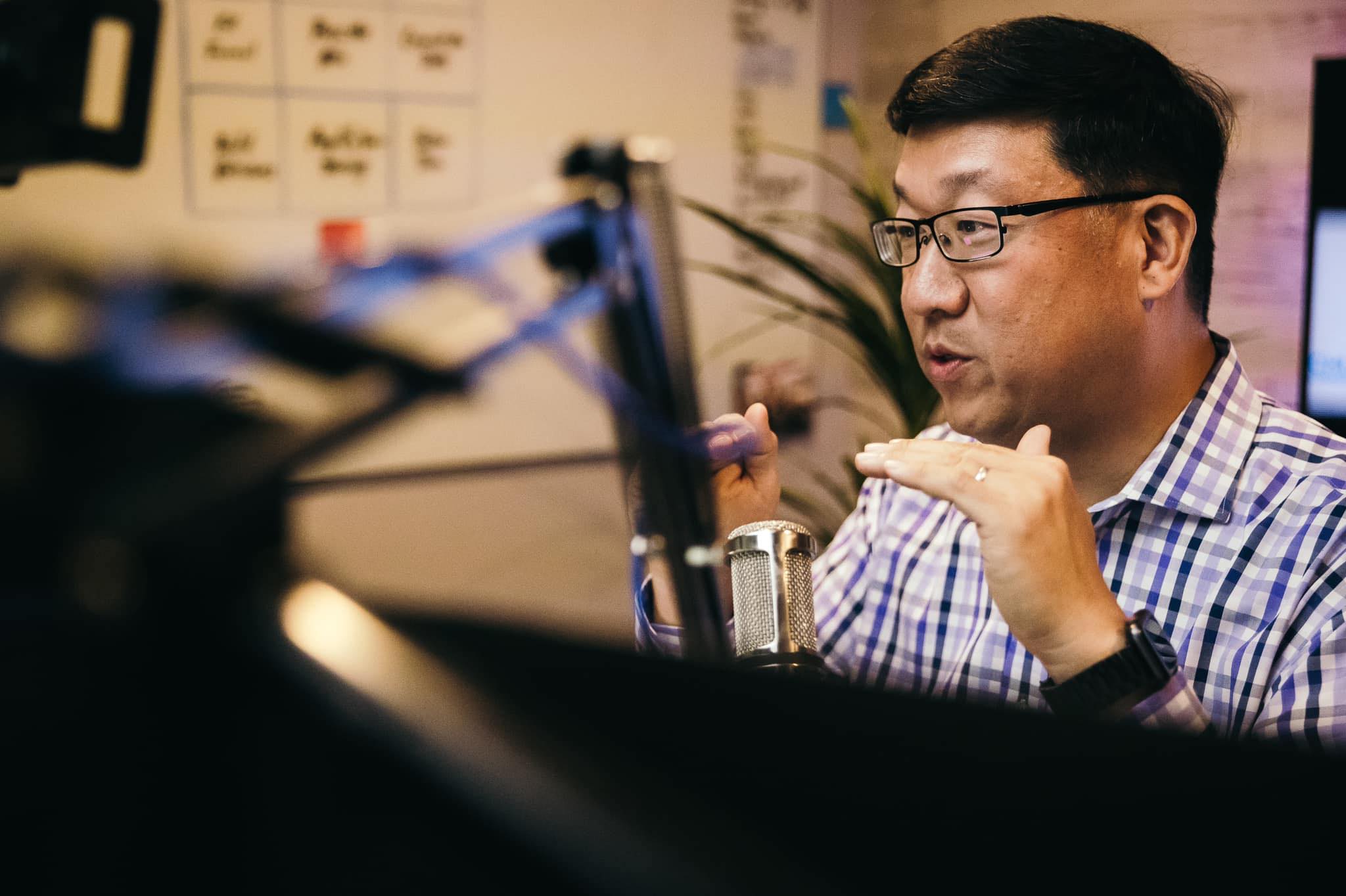Have you ever heard of FOLO? It’s one of the main reasons people – especially in ministry – avoid using AI.
FOLO stands for fear of looming obsolescence. You’ve probably heard this play out in comments like, “AI is going to take all our jobs,” and “AI will do all our work for us.” But is that true? Not according to Kenny Jahng, a content marketing advisor and communications strategist who helps nonprofit, cause-driven and faith-based organizations.
“The future of AI is pervasive and personalized, but it’s not something we need to prevent,” Kenny said. “It’s not a job ender; it’s something that will help you evolve your job and do more if you’re able to find the opportunities that technology is going to empower you with. It’s not the big bad wolf that I think we are all afraid of. It’s a powerful tool that needs responsible stewardship.”
So if AI is not a job ender, how should church leaders think about AI?
How to think about AI:
- A job evolver – AI isn’t here to take your job; it’s here to evolve your job and open up more opportunities.
- Another evolution point of technology – Just like the invention of the computer, the smartphone, and the internet, AI is another step in technological advancement.
- A tool like Google – AI, like a search engine, is helpful for research, analysis, sermon illustrations, and more. It’s not an end-all be-all solution.
When approaching an AI chatbot like ChatGPT, Google Bard, or Microsoft Bing Chat, Kenny said we should think about it like a smart seminary student intern.
“It’s not a push-button candy machine that pops out a piece of candy and you open it up and consume whatever you get,” Kenny said. “It’s a conversational chatbot for a reason.”
AI is poised to open up a world of possibilities for the ministry world, from how we scale personal relationships to the roles we hire for. If we learn how to harness it, AI will likely help us communicate with more people, juggle more projects, and have more personalized and customized ministry activities and efforts for different segments of the population in our communities.
That is if we learn how to harness it.
Three Ways to Become “AI Ready”
But how do we do that? Where do we get started with AI? It’s easier than you might think. Here are three things you can start doing this week to begin incorporating AI into your workflow:
- Put a recurring meeting on your calendar to work with AI 15 min a day for 30 days straight. During that time, find something on your to-do list, open up an AI ChatBot, and ask how it can help you accomplish it.
- Have a staff meeting about AI. Have a lunch-and-learn time where you ask for questions, ask what questions you should have as a group, ask who’s using AI, and see if anyone wants to share how they’ve been using the technology.
- Bring up AI organically in conversation – get people used to hearing about it as a tool of the trade and technology that helps you advance your mission.
Ultimately, becoming AI ready comes down to being a problem solver – someone who leans in to technological growth and learns how to leverage it for their ministry.
“You need to figure out what you are called to actually go in and attack … What if you actually used AI in the equation to attack that problem?” Kenny said. “If we just put on the hat of a problem-solver that is growth-oriented, we are going to be able to find new opportunities that the church has never even thought of before.”
If your team is ready to seek out and embrace those new opportunities, Slingshot Group can help. We offer coaching to unleash your team’s potential and help people love their work through coaching for new staff, teams, leaders in transition, succession, and more. Learn more about our coaching here.





